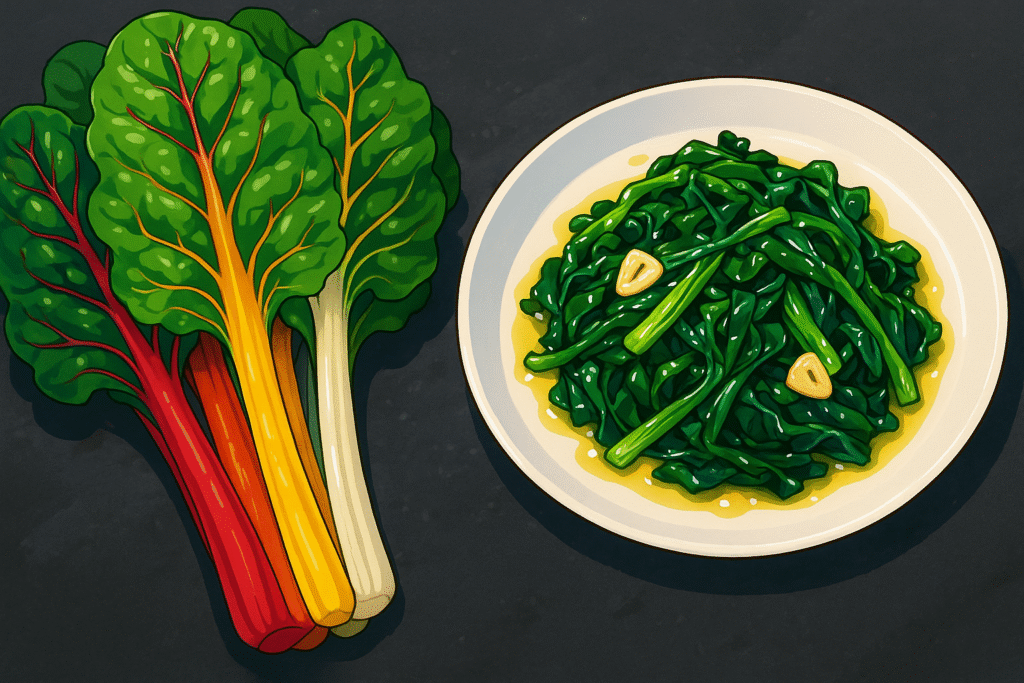Swiss Chard (Beta vulgaris subsp. cicla)

About Swiss Chard
Swiss chard is a leafy green with crinkled leaves and brightly colored stems. It’s earthy, slightly bitter, and softens beautifully when cooked.
From stems to tips, it’s edible and versatile — ideal for sautés, stews, quiches, and wraps.
The History of Swiss Chard
Despite its name, Swiss chard isn’t Swiss — it hails from the Mediterranean. The “Swiss” part was added by botanists to distinguish it from similar European beets.
Used for centuries in Greek and Roman cooking, chard is now a staple in southern European and Middle Eastern kitchens.
The Science of Swiss Chard
wiss chard is rich in vitamin K, A, magnesium, and iron. It contains betalains (antioxidants found in beets) and oxalates, which may inhibit mineral absorption — but decrease when cooked.
The colorful stems also provide flavonoids and carotenoids.
The Geography of Swiss Chard
Chard grows best in mild climates and is cultivated across Europe, the Americas, and North Africa. In Italy, it’s essential in torta pasqualina; in the Middle East, it’s simmered with lentils or chickpeas.
It thrives in spring and autumn — and often re-grows after harvesting.
Varieties of Swiss Chard
Bright Lights
Rainbow stems. Milder flavor and beautiful in salads or sautés.
Fordhook Giant
Large, white stems. Hearty and productive.
Rhubarb Chard
Crimson stems with deep green leaves. Slightly sweet and earthy.
Lucullus
Pale green leaves and white stems. Classic Mediterranean flavor.
Pink Passion
Hot pink stems. Stunning in the garden and on the plate.
FAQs All your questions about Swiss Chard: answered
Can you eat the stems?
Yes — they take a bit longer to cook than the leaves, but they’re flavorful and tender when sautéed.
Is chard more bitter than spinach?
Slightly. Cooking mellows the bitterness and brings out its earthiness.
How do you store Swiss chard?
Wrap in a damp paper towel and store in a bag in the fridge. Use within 3–5 days.
Can you eat chard raw?
Yes — young leaves are great raw. Mature ones are better cooked.